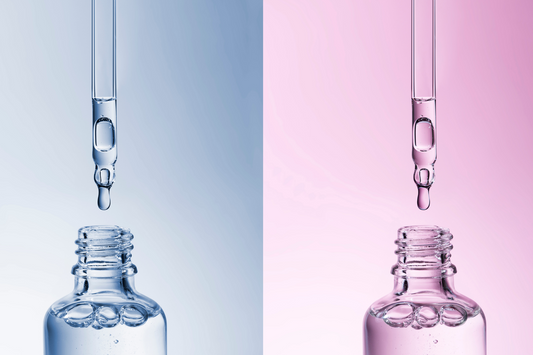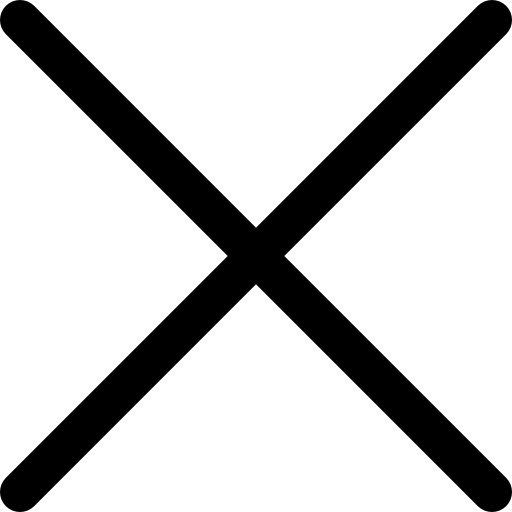When it comes to beauty, a healthy head of hair is one of our most precious assets. Even the thought of hair thinning or hair loss can be a stressful experience. Fortunately, there are many ways to naturally promote strong, healthy, luscious hair. You may have heard of folic acid as a popular supplement given to women during pregnancy—but could folic acid for hair growth be a missing piece of the hair growth puzzle?
One way to help prevent hair thinning and hair loss is through proper nutrition and a balanced diet, and supplementing with folate is one tool in the hair growth toolkit. While the current research is certainly split, there are, however, a few indicators that suggest that both dietary folate and folic acid supplements can have a positive impact on reducing hair thinning and hair loss. Let’s take a quick dive into the differences between folate and folic acid, as well as highlight the current scientific research addressing the effects of folate on overall wellness and hair loss.
Folate vs. Folic Acid: What’s the Difference?
What is folate, and where can I find it?
We all know the importance of vitamins in maintaining our health. The B vitamins are a class of eight water-soluble, naturally occurring compounds that help to support key metabolic processes like cell growth and red blood cell production. Folate, also known as vitamin B9, plays a key role in cells that divide and grow rapidly, as well as helps with DNA repair. The term “folate” can be used to refer to a variety of different naturally occurring forms of folate, and it can be found in leafy green vegetables, legumes, and citrus fruits.
What is folic acid, and how is it different?
While folate refers to a number of similar forms of vitamin B9, folic acid, on the other hand, specifically refers to a single synthetic form of folate. Oftentimes, breakfast cereals, rice, and bread is labeled as being fortified with B vitamins—folic acid is one of these fortifying nutrients. Without folic acid as a precursor—a building block required to make a final product—our bodies can’t make folate, so folic acid can be taken in tablet form to supplement our natural dietary intake. Folic acid is much more readily absorbed than many of the naturally occurring sources of folate, and thus is an ideal form of folate for supplementation.
How much folic acid is right for me?
Obtaining enough folate through natural sources alone can be a challenge for everyone, so the CDC recommends that all adults 19 and older aim to get a certain amount each day. Because of how folic acid is converted to folate, the CDC advises a daily folate equivalent (DFE) of 400 mcg of folic acid. Given the extra demands being placed on their bodies, women who are breastfeeding are advised to get 500 mcg DFE, while it’s suggested that pregnant women aim for 600 mcg DFE. The need for extra dietary folate during pregnancy is a reason that folic acid is a major component of dietary supplements and prenatal vitamins, which are readily available at most pharmacies and grocery stores.
Folic Acid and Hair Loss
Folate is an essential component for normal health. Because of the role it plays in rapidly growing cells, it’s understandable that folate would play a key role in prenatal development. Hair follicles happen to contain rapidly dividing cells of their own, and it’s possible that folate supplementation can benefit the DNA synthesis and repair needed by those growing cells. Because folate is also involved in the production of red blood cells—which carry oxygen throughout the body to other tissues—it’s possible that it can also benefit scalp and hair health in this indirect way, as well. One study demonstrated that ingesting folic acid improved blood flow in skeletal muscles, while another study suggested that folate can help in maintaining healthy blood glucose levels. Decreased blood flow and improper blood glucose levels represent stressors on our bodies, and stress can potentially lead to hair thinning or hair loss.
The direct links between folic acid and hair loss are a bit murky, however. Little clear data is available that directly links the benefits of folic acid supplementation with its usage as a solution to prevent thinning hair. Studies investigating the serum folate levels of patients that had been previously been diagnosed with hair loss have shown mixed results. In one study, patients with chronic telogen effluvium, a form of non-scarring hair loss that leads to excessive hair shedding, found that while lower iron levels seemed to correlate with hair loss, serum folate levels were not significantly different between healthy patients and those experiencing hair loss. A another study[1] attempted to establish a link between serum folate levels and alopecia areata, a different form of hair loss caused by an autoimmune response that attacks the body’s own hair follicles, but the results remained inconclusive.
If there isn’t a direct link between folic acid and hair loss, is folate still important for hair health?
Though both studies were inconclusive when it came to folic acid for hair loss, folic acid may still play an important—if indirect—role in overall scalp health and hair growth. A separate study highlighted that between a group of healthy patients and a group of patients experiencing hair loss, patients experiencing hair loss had lower concentrations of folate in their red blood cells compared to healthy patients. Interestingly, as the severity of hair loss increased, the concentration of folate in red blood cells seemed to decrease in kind.
Outside of these limited investigations, however, it appears that there just isn’t enough data to demonstrate conclusively that folic acid supplementation is a direct solution for hair loss.
Conclusion: Does Folic Acid Help Hair Grow?
It’s indisputable that folate is an essential nutrient. For anyone with low levels of folate, it may be important to adjust your daily routine to consume enough dietary folate or supplement with folic acid in order to reach the 400 mcg DFE recommended by the CDC.
Unfortunately, the jury is still out on whether folate will help your hair grow back, or even just prevent additional hair thinning or hair loss. If you do notice signs of thinning hair or any additional symptoms of hair loss, however, it’s important to talk to your doctor about what you can do to tackle the problem before it gets worse. Additional dietary folate could be one of many solutions that your doctor recommends to improve your overall health.
What other options do I have for hair growth?
If you’re still looking for more targeted solutions that will support thicker, healthier-looking hair, our Hair Revival Serum uses a direct approach to combat hair loss. Did you know that when you start losing your hair it means that your follicles have gone dormant? You need a solution that effectively wakes them up to start stimulating new hair growth. Our patented ingredient, ProCelinyl™, does just that, targeting your hair follicles and essentially giving them a hard reboot. Modern problems require modern solutions, after all—make our Hair Revival Serum a part of your routine today and fight back against thinning hair!
Additional References
- Gonul M, Cakmak SK, Soylu S, Kilic A, Gul U. Serum vitamin B12, folate, ferritin, and iron levels in Turkish patients with alopecia areata. Indian J Dermatol Venereol Leprol. 2009 Sep-Oct;75(5):552. doi: 10.4103/0378-6323.55430. PMID: 19736464.





